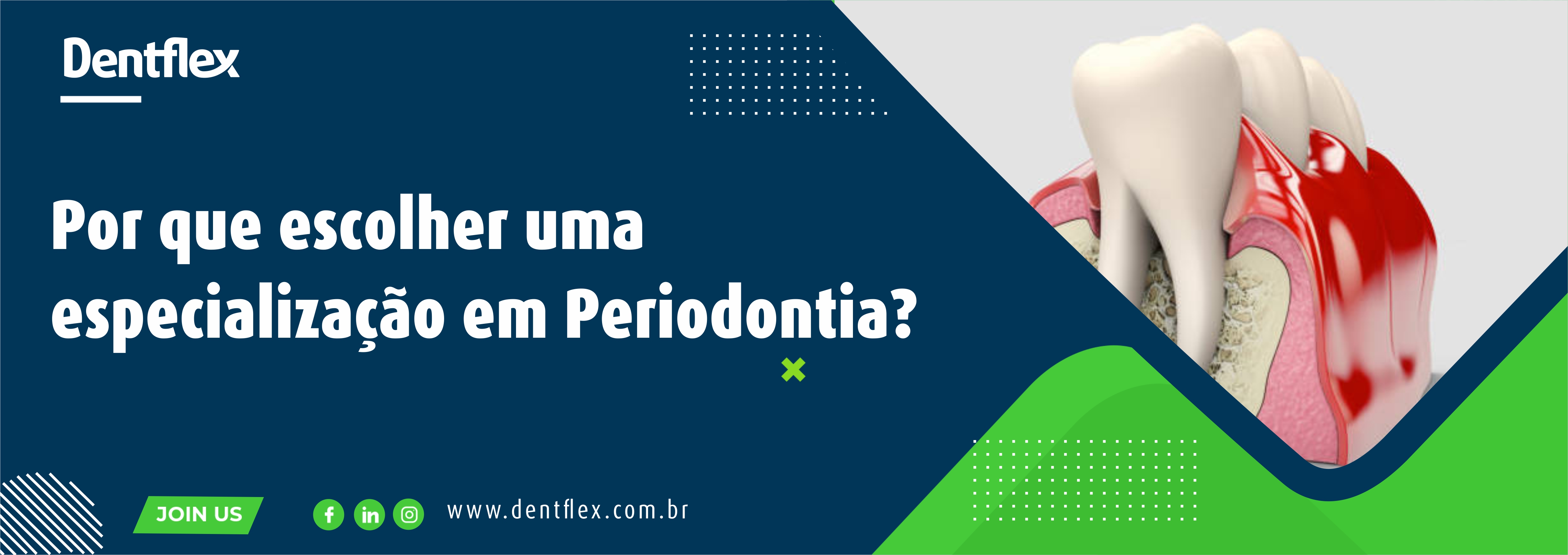Why choose a specialization in Periodontics?

Studying and qualifying are important factors in any profession. In Dentistry, there are several expertises that the professional can choose to offer a specialized treatment to the patient. In this context, the specialization in Periodontics is one of the most important and popular, as it deals with both health and oral aesthetics.
If you are at the beginning of your career, you need to know the different specialties in Dentistry to decide which path to follow. Then, get to know the specialization in Periodontics:
What is the importance of specialization in Periodontics?
Periodontics is an area of Dentistry focused on the health of the gums, a region as important as the teeth, but largely ignored by patients in general.
The gums are essential for supporting the teeth; it is she who provides the support for us to speak, chew and bite. However, plaque, which lodges between it and the tooth, remains a common problem. According to a Datafolha survey commissioned by the Federal Council of Dentistry (CFO) in 2016, only 57% of Brazilians use dental floss — 30% use it more than once a day and 17% use it once a day.
The problem is that plaque buildup can progress to other problems, such as gingivitis and periodontitis.
Gingivitis
It is inflammation of the gums, often caused by the evolution of plaque to tartar. It seems innocent at first, but it not only complicates oral health, it can lead to other problems, including heart problems.
Gingivitis is an infection caused by bacteria, which can enter the bloodstream and cause even more serious complications such as heart problems and stroke. A study published in 2018 revealed that individuals who visit the dentist frequently had half the risk of stroke compared to those who do not receive regular dental care.
Periodontitis
It is the aggravation of gingivitis — when bacteria cause the progressive destruction of the supporting tissues of the teeth, especially their roots. In this case, the inflammation progresses to the formation of pockets at the site, which favor tissue destruction and tooth abscess.
Consequently, endocarditis (when the bacteria enters the bloodstream and causes infection of the heart valves) and loss of teeth can occur. The relationship between periodontal disease and myocardial infarction is well established in the medical field.
Periodontists help patients to not only take care of their smile, but also their health as a whole.
How is the specialization in Periodontics?
To work with Periodontics, the individual must graduate in Dentistry, register with the Regional Council of Dentistry (CRO) of their state and attend a specialization in the area. However, it cannot be just any course: it must be recognized by the MEC and have a minimum workload of 750 hours of study — a rule established by the CFO. After completing the course, the professional still needs to register again at the CRO — but now as a specialist in Periodontics.
In addition to taking care of the gums, the Periodontics student learns to perform different types of periodontal and implant dentistry surgery, including plastic surgery, installation of implants and reconstruction of bone defects.
How is the job market in Periodontics?
According to a survey by the CFO, Periodontics is the fifth dental specialty with more dentists in Brazil (10,114), only behind Orthodontics (28,242), Implantology (16,849), Endodontics (16,481) and Prosthodontics (12,397). Despite the large number, the market is large and unemployment in the area is low, as demand is high.
Periodontists are in great demand for a simple reason: dentists usually refer the patient to the professional before any procedure. That's because, regardless of the type of intervention, the gingival tissue needs to be healthy. Therefore, the periodontist will be asked to check from the patient's oral health to perform treatments for gingivitis and periodontitis.
Another important detail is that most professionals are concentrated in the Southeast region. Therefore, better opportunities may be in the countryside or further away, with a scarcer qualified workforce.
What are the approximate earnings?
According to the website Salario.com.br, which brings an estimate based on values from all over Brazil, a periodontist receives, on average, R$ 3,419.13 for 22 hours of work per week. The salary floor is between R$ 3,120.61, while the ceiling is R$ 5,661.62, taking into account professionals with a formal contract under the CLT regime.
Vagas.com, on the other hand, brings more optimistic data: the site claims that the professional starts receiving R$3,500 and may earn up to R$6,490. The average salary, in this case, would be R$ 5,177.
Ready to invest in a specialization in Dentistry? So, share this text on your social networks and help other professionals starting their careers!
Source: DVI Radiologia Odontológica. Available at: https://www.dviradiologia.com.br/2020/09/30/especializacao-em-periodontia-saiba-tudo-o-que-precisa/. Access on: 08/25/2021.
